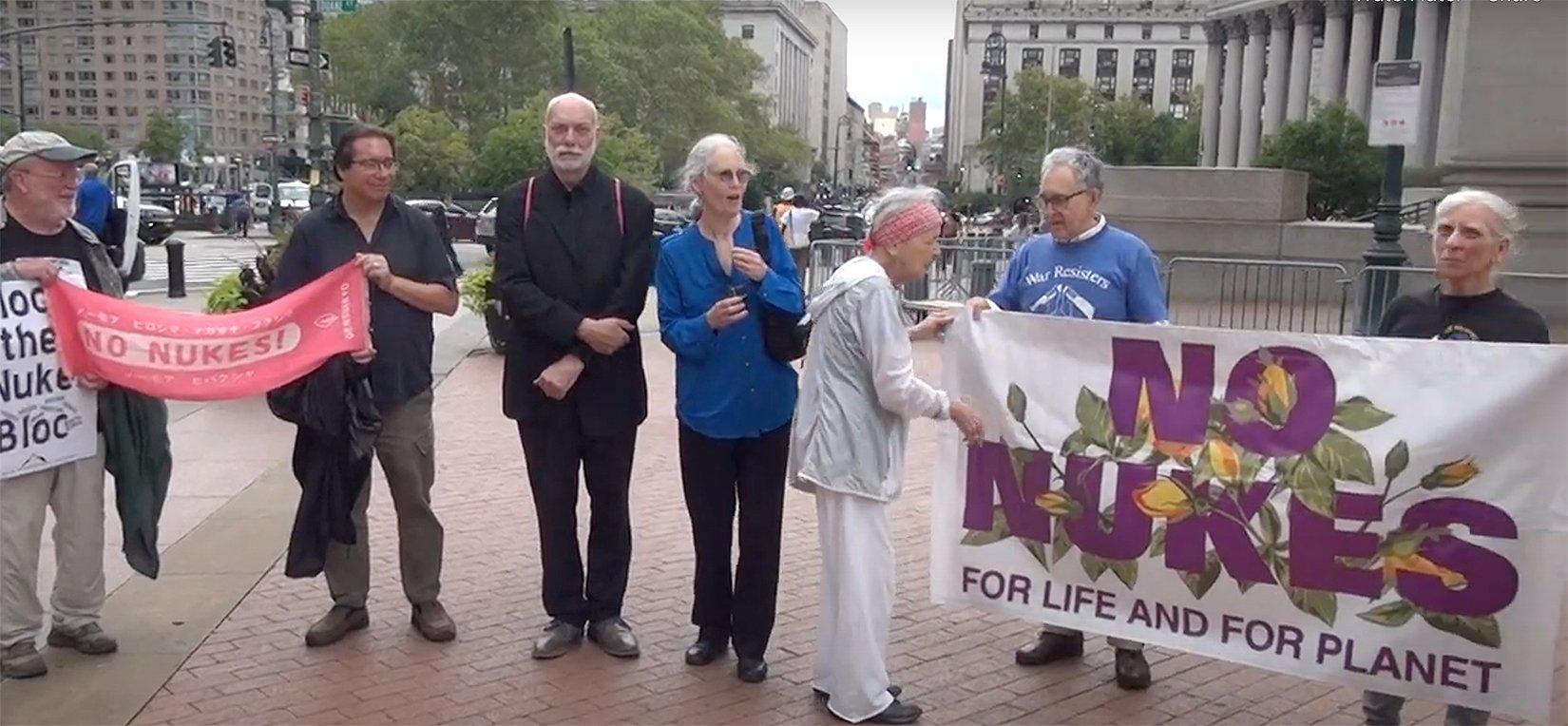NEW YORK – U.S. bishops are calling for world leaders to continue working towards nuclear disarmament after participants in the recent Non-Proliferation of Nuclear Weapons Review Conference (NPT) failed to reach a consensus on a final document.
“We lament the failure of the state-parties after four long weeks of negotiation to reach consensus on a final document,” Bishop David Malloy of Rockford, chair of the U.S. bishops’ conference’s committee on international justice and peace, said in a Sept. 8 statement.
“We advocate for the acceleration and strengthening of the implementation of the NPT and call on all state-parties to recommit to dialogue and demonstrate progress toward the elimination of nuclear weapons everywhere,” Malloy said.
The conference took place Aug. 1-26 at the United Nations headquarters in New York. This year’s conference, the 10th, was slated to take place in 2020, but was delayed by two years due to COVID-19. It takes place every five years per a decision made at the 1995 NPT Review and Extension Conference.
Pope Francis delivered a message to participants ahead of this year’s conference, imploring them to “move with determination from a perspective of competition to one of cooperation,” and further reminding them that “international peace and stability cannot be based on a false sense of security, on the threat of mutual destruction or total annihilation.”
In a statement following this year’s conference, the United Nations blamed the Russian Federation for the lack of consensus, as it was the only opposition to a summary document presented by conference president Gustavo Zlauvinel. Adoption of the document requires a consensus from all 191 member states.
Speaking at the meeting, the Russian Federation’s delegate argued that there was a “political dimension” in the summary document related to Russia’s invasion of Ukraine. Specifically, five paragraphs that referred to the Ukrainian nuclear power plant in Zaporizhzhia.
Russia attacked and took over the plant earlier this year. Last week, a team of inspectors from the International Atomic Energy Agency, the United Nations’ nuclear watchdog, called for the creation of a safe zone around the facility to prevent a potential nuclear disaster.
Speaking with Crux, Archbishop John Wester of Santa Fe said he was disappointed in the outcome of this year’s conference, but happy that they met after the COVID-19 delay. He called Russia’s invasion of Ukraine a “clarion call that we need to really speak seriously and urgently about multilateral world nuclear disarmament,” adding that the present risks the world face “are just too great.”
Wester penned a pastoral letter, Living in the Light of Christ’s Peace: A Conversation Toward Nuclear Disarmament, in January. The Archdiocese of Santa Fe, located in New Mexico, is the home of two weapons’ laboratories and the nation’s largest nuclear weapons’ depository, which is part of the reason he decided to take a lead in calling for nuclear disarmament around the world.
In the letter, Wester calls the nuclear arms race a “vicious spiral that prompts progressively destabilizing actions and reactions by all parties including our own country.”
According to the United Nations, there are about 13,000 nuclear weapons left in the world, at least 90% of which are owned by the United States and Russia. Wester noted that given Russia’s nuclear weapons’ arsenal and the invasion of Ukraine it wasn’t a surprise that a final agreement wasn’t reached.
“I don’t think anyone was surprised that the NPT didn’t reach a consensus, but I think it was at least good that they tried it, and will keep at it, and that we keep the pressure on, that we keep trying to keep states coming together and talking about it,” Wester said.
The archbishop added that until the next conference it’ll be important for everybody to “continue the conversation … and to see this as something that’s ongoing.”
Malloy offered a reminder that “no corner of our world is untouched by growing hostilities of war.”
“Fundamentally, it is the enmity found in the human heart that is at the root of such conflict and hostility to which the church proclaims Christ Jesus as the remedy to mankind,” Malloy said. “We pray that all nations will work to foster trust over suspicion and to bring about immediate and measurable progress towards disarmament and lasting peace.”
Follow John Lavenburg on Twitter: @johnlavenburg











